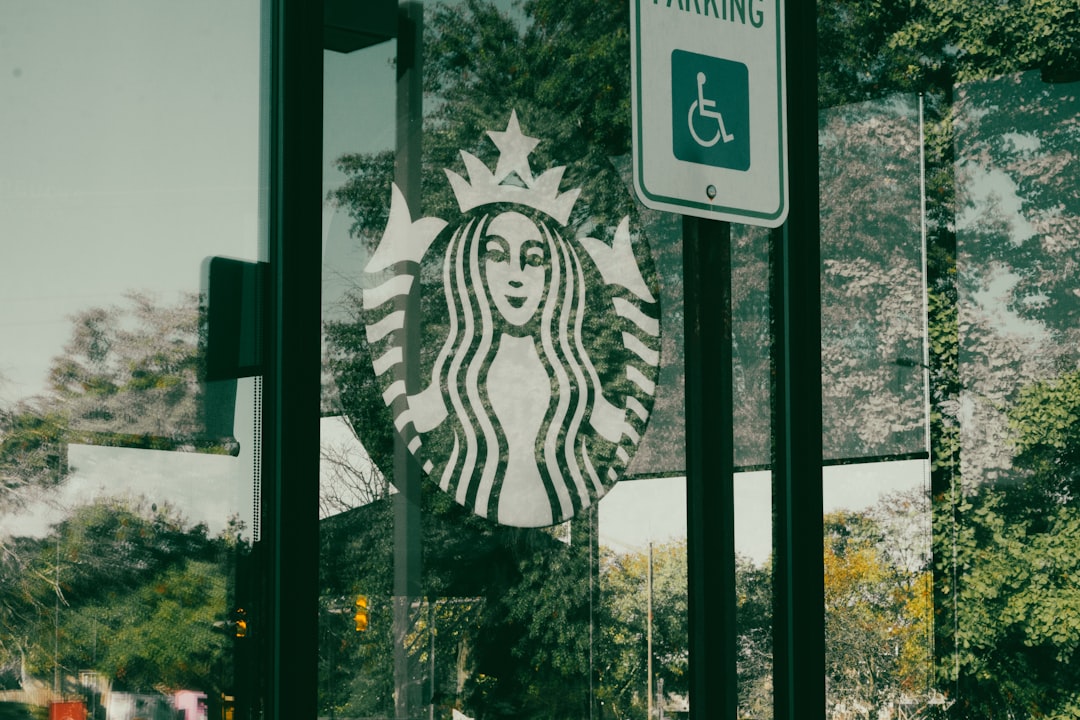Bruce Springsteen’s “Born in the U.S.A.” – The Anti-Anthem That Became an Anthem

Ever wonder why politicians keep playing this song at rallies? Here’s the shocking truth: “Born in the U.S.A.” has been so blatantly misused that it’s distracted us from its message, and the misinterpretation is so glaring it’s still a punch line. The song has been treated as a flag-waving paean to America by politicians like Ronald Reagan and Pat Buchanan, without acknowledging the bitter critique of American policy present in the lyrics about a disillusioned Vietnam veteran. Springsteen called it “one of my greatest and most misunderstood pieces of music,” with gruff vocals that make it difficult to hear the lyrics expressing a Vietnam vet’s anguish, yet the proudly sung chorus repeats “Born in the U.S.A.” The song was even heard at Donald Trump rallies in 2020, despite Springsteen calling Trump “a flagrant, toxic narcissist” and “a threat to our democracy”. In the 2023 film “Air,” Jason Bateman’s character admits it took him years to realize he’d been “singing enthusiastically with completely the wrong idea”.
Don McLean’s “American Pie” – Not Just About That Plane Crash

Think you know what this 8-minute epic is really about? Think again. While “the day the music died” refers to the 1959 plane crash that killed Buddy Holly, Ritchie Valens, and The Big Bopper, the song’s theme goes beyond mourning McLean’s childhood heroes to reflect deep cultural changes and loss of innocence between 1959 and 1970, with lyrics that have been debated for decades. McLean wanted to write “a big song about America and about politics” in a different way, starting with memories of the Buddy Holly crash. As America secularized in the 1960s, fewer souls found religion and looked to musicians for spiritual guidance, with McLean skeptical about such idolatry and calling rising musicians like Bob Dylan “jesters” compared to Elvis, “the real king”. In a 2024 interview, McLean explained the song “talks about the fact that things are going somewhat in the wrong direction” and connected it to current “woke bullshit” in America.
Manfred Mann’s “Blinded by the Light” – The Most Famous Misheard Lyric Ever

This might be rock history’s greatest case of mistaken lyrics, and it made the song a hit. Manfred Mann’s Earth Band changed Bruce Springsteen’s original “cut loose like a deuce” to “revved up like a deuce,” referring to a 1932 V8-powered Ford automobile nicknamed the “deuce coupe,” but the line is frequently misheard as “wrapped up like a douche”. Singer Chris Thompson contends he sang “deuce,” but it sounds suspiciously like “douche,” which didn’t hurt airplay and may have helped by giving the song notoriety. The band tried to re-record the vocal, but the rest of the track sounded horrible, so they left it, with fans later telling Mann the record was a hit because “everyone was trying to figure out if it was ‘deuce’ or ‘douche’”. Springsteen himself joked about this in 2005: “Deuce was like a Little Deuce Coupe, as in a 2-seater Hot Rod. Douche is a feminine hygienic procedure. But what can I say, the public spoke”. Warner Bros. even sent the band on a three-week tour to 56 radio stations to clarify “it was not that”.
*NSYNC’s “It’s Gonna Be Me” – The May Meme Nobody Saw Coming

Every April, social media explodes with memes about this song, but here’s what’s actually happening. The joke sees “me” replaced with the commonly misheard “May,” due to lead singer Justin Timberlake’s exaggerated pronunciation, which was at the request of the song’s writers, as he revealed in September 2023. While many fans know the title, it’s nearly impossible not to sing “It’s gonna be May” instead. This wasn’t an accident or natural mishearing – the writers specifically asked Timberlake to pronounce it that way. The track became a cultural phenomenon decades after its release, spawning countless memes every spring. What seemed like a simple pop song turned into an annual internet tradition, proving that sometimes the “wrong” way to hear a song becomes more famous than the original. The irony? Timberlake was following directions when he created what would become one of music’s most enduring misheard lyrics.
Robert Palmer’s “Addicted to Love” – Digital Age Confusion

In our digital world, this 1986 classic has taken on new meaning through misheard lyrics. Hitting number one on the charts, the song is most memorable for its music video featuring models dressed identically, pretending to play instruments. The most common mishearing transforms the title into “A digital love,” which sounds surprisingly fitting for today’s tech-obsessed world. Palmer’s distinctive vocal delivery and the song’s production make it easy to hear “digital” instead of “addicted,” especially when played through modern sound systems or streaming services. The confusion has only grown in recent years as younger listeners discover the song through playlists and social media. The video was parodied constantly throughout the ’80s and ’90s, including in a Pepsi commercial featuring Britney Spears. What’s fascinating is how this mishearing accidentally predicted our current relationship with technology and digital love.
ABBA’s “Take a Chance on Me” – The Jackie Chan Phenomenon

This disco-era hit has spawned one of music’s most amusing misinterpretations, turning a plea for romance into an ode to martial arts cinema. The commonly misheard lyric “If you change your mind, Jackie Chan, I’m the first in line, Jackie Chan” replaces the actual “take a chance,” with the song reaching number 3 in the US but hitting number 1 in the UK, Austria, Belgium, Ireland, and Mexico, earning Gold certification in 1978. The mishearing has become so widespread that it’s spawned countless internet memes and jokes. ABBA’s Swedish accents and the song’s rapid-fire delivery make it easy to hear the famous action star’s name instead of the intended romantic plea. Younger fans discovering the song through streaming platforms often report hearing “Jackie Chan” first, then being surprised to learn the real lyrics. The coincidence becomes even funnier when you consider that Jackie Chan films were gaining popularity around the same time period, making the misheard version feel almost prophetic.
Adele’s “Chasing Pavements” – The Penguin Mix-Up

Sometimes the most heartfelt ballads get turned into nature documentaries through misheard lyrics. This classic heartbreak song sees listeners mishearing “chasing pavements” as “chasing penguins,” with the song credited as giving Adele her American breakout when she performed it on SNL in 2008. The confusion stems from Adele’s British accent and emotional delivery, which can make “pavements” sound like “penguins” to American ears. The mishearing has become so common that fans joke about Adele’s Antarctic wildlife obsession. What makes this particularly amusing is how the misheard version completely changes the song’s meaning from urban heartbreak to Arctic adventure. Social media has embraced this confusion, with memes showing penguins alongside Adele’s lyrics. The song’s success in America might have been partly due to this quirky mishearing, as it gave listeners something memorable to talk about and share.
Johnny Nash’s “I Can See Clearly Now” – When Lorraine Left

This reggae classic has been giving listeners the wrong weather report for decades. The first reggae song to hit number 1 on the Billboard Hot 100, “I Can See Clearly Now” has one of music history’s most commonly misunderstood lyrics, with Nash’s thick Texan accent making it hard for listeners to figure out exactly what those lyrics are. Instead of celebrating the departure of stormy weather with “the rain is gone,” countless fans have been wondering about the mysterious Lorraine who apparently left town. This misheard lyric has spawned jokes about who Lorraine was and why her departure brought such clarity to the singer’s life. The confusion is so widespread that some radio DJs have made careers out of playing up the “Lorraine” version. Nash wrote the lyrics himself, making this a case where the artist’s own vocal delivery created one of music’s most enduring mondegreens. The irony is perfect: a song about seeing clearly has left millions of listeners completely confused about what they’re actually hearing.
The Beatles’ “I Want to Hold Your Hand” – Bob Dylan’s High Confusion

Even rock legends get lyrics wrong, and this Beatles classic created one of music’s most famous backstage stories. The first Beatles song to catch on in America has one of the group’s most frequently misheard lyrics, with industry lore claiming Bob Dylan also misunderstood a line, allegedly thinking “I can’t hide” was “I get high,” and after learning the group wasn’t marijuana smokers, he introduced them to the practice and cemented himself in Beatles history. This mishearing literally changed rock history, as Dylan’s introduction of cannabis to the Beatles influenced their later psychedelic period. The British accents made the lyrics difficult for American listeners to decipher, leading to widespread confusion about what the Fab Four were actually singing. Dylan’s misinterpretation became a pivotal moment in 1960s counterculture. The story has become legendary, showing how misheard lyrics can have consequences far beyond just singing along incorrectly. What started as a simple language barrier ended up influencing some of the greatest music ever recorded.
The Monkees’ “I’m a Believer” – Shrek’s Breakup Song

Thanks to a certain green ogre, this upbeat love song has been transformed into something much darker in many listeners’ minds. Popularized by the movie “Shrek,” “I’m a Believer” was actually released 35 years earlier by The Monkees, becoming an instantaneous hit that went gold within two days and held the number 1 spot for seven weeks. The common mishearing “Then I saw her face, now I’m gonna leave her” completely reverses the song’s joyful message of finding love and becoming a believer. This dark interpretation has spread through social media and streaming platforms, with younger fans discovering the song through “Shrek” often hearing the pessimistic version first. The misheard lyric turns a celebration of love into a story of romantic disappointment. Neil Diamond wrote the original song as a pure love anthem, but modern listeners have transformed it into something cynical. The confusion shows how cultural context can completely change how we interpret music, even when the actual words remain the same.
Morgan Wallen’s “Cowgirls” – The Rodeo Number Game

Country music’s biggest star isn’t immune to lyric confusion, proving that even contemporary hits can stump listeners. Countless Morgan Wallen fans thought the country superstar was singing “Rodeo 4-1-9” in his April 2024 hit “Cowgirls,” when the actual line is “Rodeo for one night”. This mishearing shows how even brand-new songs can immediately generate confusion among listeners. Wallen’s distinctive vocal style and country pronunciation made fans hear what sounded like a specific rodeo code or location. The “4-1-9” interpretation led to fan theories about secret meanings and hidden references in the song. Social media buzzed with debates about what “Rodeo 4-1-9” could mean, with some fans convinced it referenced a specific venue or date. According to a September 2024 analysis, Elton John is the most frequently misunderstood musician of all time, with more than 2,500 reports of misheard lyrics. This demonstrates that lyric confusion spans all genres and generations, from classic rock to modern country.
What’s wild is how these misunderstandings often become more famous than the original lyrics themselves. Did you expect that your favorite sing-along moments were completely wrong all along?







